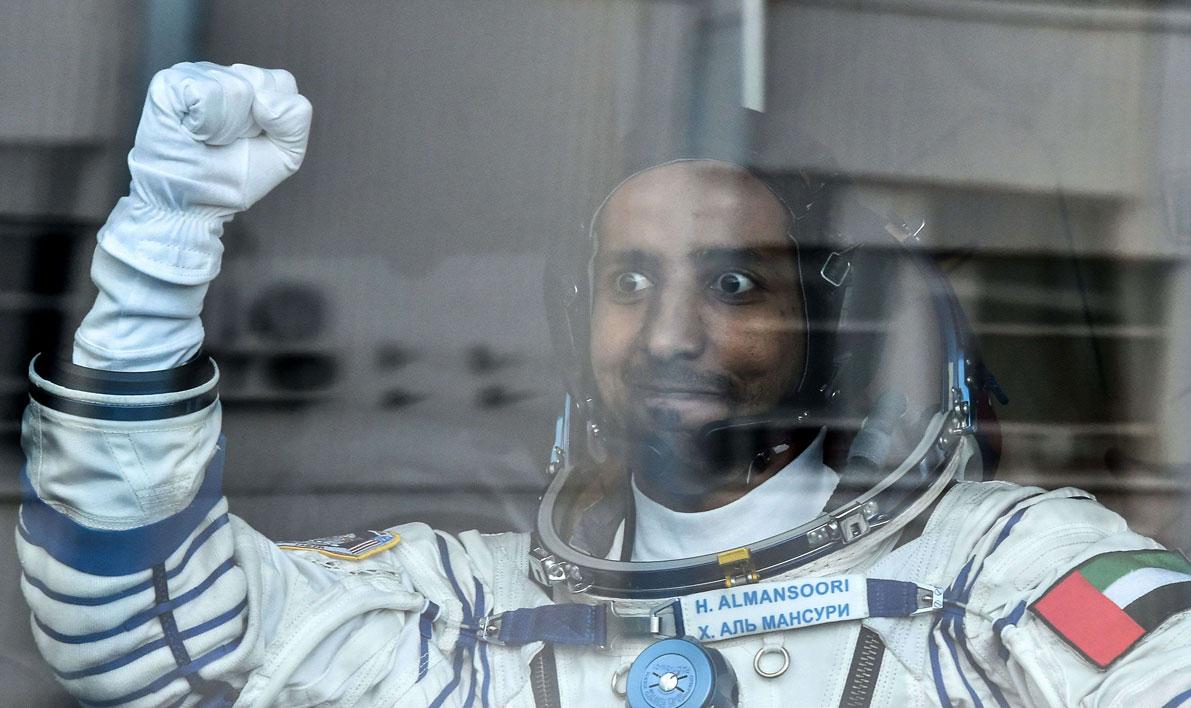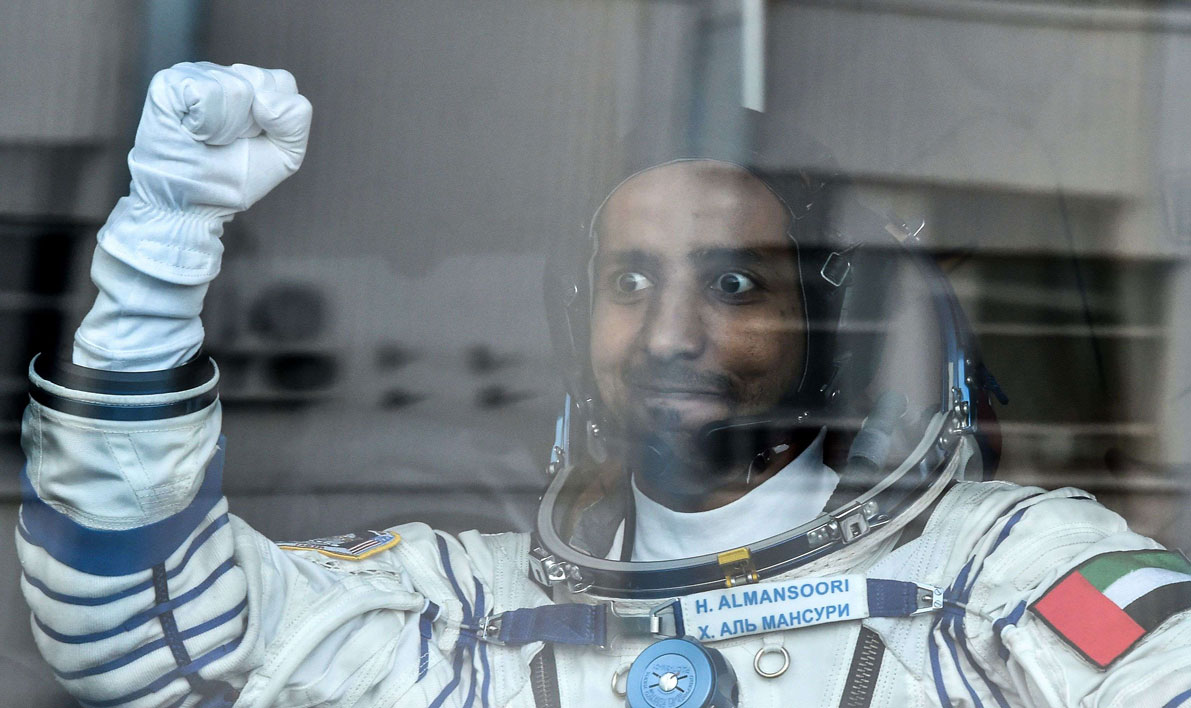Mansoori's space quest inspires all young Arabs
Beyond the technological and scientific prowess involved, the launch into space of an astronaut from the United Arab Emirates should instil millions of young Arabs with a much-needed dose of hope.
The journey of Hazza al-Mansoori, a former pilot in the UAE armed forces, sends a message to the Arab youth “that we can progress and move forward," said Sheikh Mohammed bin Rashid al-Maktoum, UAE vice-president and prime minister.
Imagine a Middle East without strife and imagine what the people of the region could achieve if they applied their energies towards constructive projects.
Imagine if the vast sums spent on defence budgets in the countries of the region were invested instead on social welfare, in encouraging business and stimulating the sciences, such as in sending young Emirati men and women into space.
Consider the advances that could be made in technology and medicine if the best brains in the Middle East could work for the benefit of the people of the region instead of looking for ways to emigrate to the United States, Canada, Europe and Australia looking for greener pastures.
Imagine the rise in intellectual power if students in the Middle East and North Africa could exchange ideas instead of insults and debate options for progress instead of hate-inspired scenarios.
As Mansoori conducts scientific experiments with his male and female colleagues aboard the International Space Station, so, too, can young Arab and Emirati minds imagine a future without gender-based restrictions be they social, political or religious.
Imagine how the level of education and understanding would improve if scholars could lecture across the region without being restricted by man-made frontiers, both physical and imagined?
These are just a few basic ideas in a sea of endless possibilities, where the only barriers are those erected by demagoguery and backward thinking.
Imagine a terrorism-free Middle East where young people are drawn to artists and thinkers, not to jihadists and bomb makers.
Imagine a Middle East where border disputes belong in the history books and where economic integration allows young entrepreneurs to invest and prosper anywhere in the region.
Hard to visualise? If the Europeans could do it, why couldn’t the countries of the Middle East?
How many wars were fought between France and Germany? Between Germany and Russia? How many armies marched across Poland?
Europe includes 27 countries, 23 different languages as diverse as French, Lithuanian, Hungarian and Maltese with millions of people practising dozens of religions but still united as the largest economic market in the world.
War in Europe today is unimaginable because the European Union has intertwined the economies of its members in such a manner that it is unthinkable for any two members to resort to armed conflict.
So, imagine a conflict-free Middle East, where tourists arrive by cruise liner to Beirut, Alexandria or Haifa, or by charter flights to Baghdad, Marrakech, Tehran or Ben Gurion airports. They would be free to roam throughout the region without worry of fundamentalist terror or of Israeli war plans.
Visualise how business -- and as a result of the standard of living -- would benefit if people and merchandise could be driven from Lebanon to Iraq, to Gaza and on to Saudi Arabia, Egypt and Morocco.
Think of what the tourism sector and renewable energy industry could gain from temperate climates most of the year. When Europe is freezing during the winter, depression and suicide rates climb in northern Europe. When the sun is visible for just a few hours a day, if that, the beaches of Annaba, Hammamet and Hurghada -- only a couple of hours by plane from any European country -- can be very enticing and affordable.
Imagine a vast industrial zone in Gaza where labour is abundant, easy to train and inexpensive -- and where European and US car manufacturers can open assembly plants and textile mills to market their products in the Middle East, Africa and beyond.
Imagine Christian pilgrims looking to follow in the footsteps of the great prophets, travelling unhindered from Israel to the Palestinian territories to Jordan to Syria and to Lebanon. Imagine Muslim pilgrims doing the same from Mecca and Medina to Karbala, Jerusalem and Qom. Imagine all religious minorities free to worship without sectarian stigma or jihadist demonisation.
Imagine a Middle East without refugees. Where the camps of shame -- now 71 years in existence and where second- and third-generation refugees are squatting amid rancour and misery -- no longer exist.
Imagine those camps replaced by decent, modern and comfortable tenements with all the amenities of modern life. Where the idle youth who were once only too happy to be offered an AK-47, a monthly stipend of a few hundred dollars, along with unlimited prestige that accompanied the uniform of a “freedom fighter” -- and nothing else, let alone hope for a better future -- can aspire to a better life for themselves and their families.
Give them a taste of what life should be like, then take a headcount to see how many remain in line for suicide missions.
This may be a tall order but if we can send people into space, there may be hope for a better future for our children.
For young Arabs whose dreams and ambitions have been fettered for too long, Mansoori's journey into space shows that even the sky might not be the limit.
Claude Salhani is a regular columnist for The Arab Weekly, where this article was originally published.







